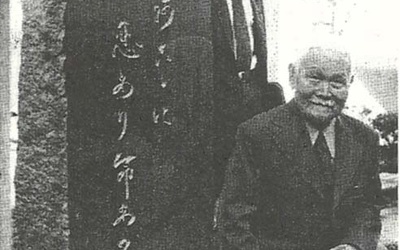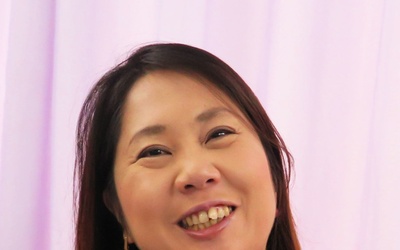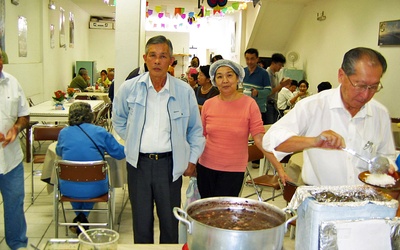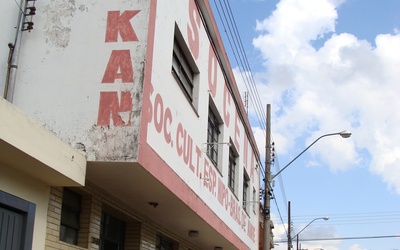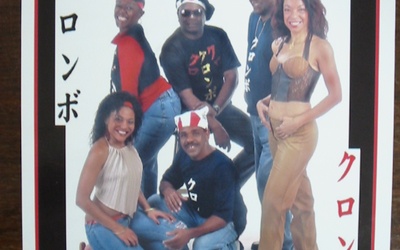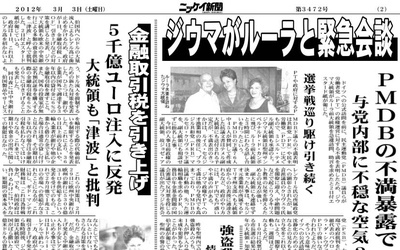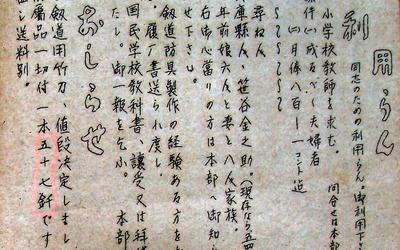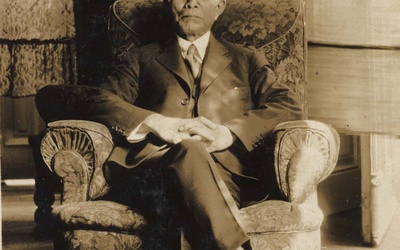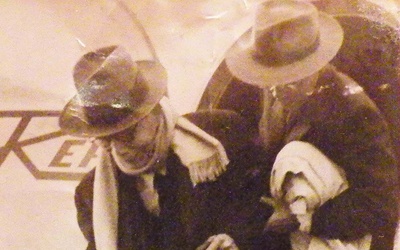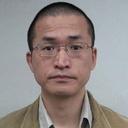
Masayuki Fukasawa
@masayukifukasawaBorn on November 22, 1965, in Numazu City, Shizuoka Prefecture, Japan. In 1992, he went to Brazil for the first time and worked as an intern at Paulista Shimbun (Japanese newspaper in Brazil). In 1995, he went back to Japan and worked with Brazilians at a factory in Oizumi-machi, Gunma Prefecture. He wrote a book, Parallel World (Ushio Publishing) about his experiences there and received Ushio Nonfiction Award in 1999. He returned to Brazil in 1999. Beginning in 2001, he worked at Nikkey Shimbun and became the editor-in-chief in 2004. He has been an editor-in-chief of Diário Brasil Nippou since 2022.
Updated January 2022
Stories from This Author
The thoughts behind "Here are mountains and rivers, here is love, here is life"
June 20, 2018 • Masayuki Fukasawa
Have you ever seen the haiku that goes, "Here are many mountains and rivers, where love and life lie?" This is the work on a stone monument located just to the left after entering the Japanese garden, at the foot of Osaka Bridge on Galvao Bueno Street in the Liberdade district of São Paulo. Those who frequented Oriental Town, fell in love so passionately that their hearts burned, and suffered such painful experiences that they almost took their lives, felt …
Do children with Japanese parents get better math grades?
Feb. 26, 2018 • Masayuki Fukasawa
"Children with one parent of Japanese descent are one year ahead of their Iberian counterparts in mathematics achievement at public elementary schools," was the result of an intriguing survey published in the online edition of Folha newspaper at 2:00 a.m. on December 24, 2017. This is a groundbreaking survey that examines how the immigrant culture of parents affects children's academic achievement. Based on the surnames of test-takers for the national academic achievement test, the academic achievement of those whose parents …
Colonia Japanese Language Education as a Bilingual Education
Feb. 5, 2018 • Masayuki Fukasawa
"Investing in Japanese language education in kindergartens is highly effective," concludes Makiko Matsuda, an associate professor at Kanazawa University who is currently conducting a study on "the Japanese language usage characteristics of plurilingual speakers in Japanese communities in South America." He was surprised to see that Japanese language schools in places like Pinhar and Pilar do Sul are "producing fairly advanced bilingualism," and he believes this is due to the fact that there are kindergartens and students attend Japanese language …
Hello Again Feijoada
Oct. 4, 2017 • Masayuki Fukasawa
“I enjoyed it for the first time in three years.” In June, 2005, Makoto Oka, (age 66 at the time) chairperson of Brazil Okayama Kenjinkai (prefectural association) commented on the feijoada, a major Brazilian dish, with a face that showed his getting over some past woe. As a matter of fact, Oka almost died from a burn on his body when he turned over a giant pot of feijoada at the kenjinkai hall in the past. Feijoada, a local cuisine …
Is "immigrant" a discriminatory term? Expressions related to identity - Part 1
Jan. 31, 2017 • Masayuki Fukasawa
This should be read as a sequel to my previous article, "South America's Japanese Creole Language, Colonia ." This time, I've written mainly about the subtle writing styles of Colonia, which are related to "identity." First of all, is "immigrant" a banned word on TV? In the "Reporter's Eye" column of the June 4, 2004 edition of the Nikkei Shimbun, I wondered whether NHK had made the word "immigrant" a banned term and gave the company's response. This is because …
The Japanese version of South American Creole "Colonia" and the insular feeling of the word "overseas" - Part 2
Jan. 5, 2017 • Masayuki Fukasawa
Read Part 1 >> Even the spelling of the president's name is different Naturally, there are differences between the way personal names are written in the Japanese media and the way they are written in Japanese-language newspapers in Brazil. For example, former President Dilma, who was impeached at the end of August 2016, is referred to as "President Rousseff" in Japan. We believe that since the Brazilian media normally refers to her as "presidente Dilma," translating it directly into Japanese …
The Japanese version of South American Creole "Colonia" and the insular feeling of the word "overseas" - Part 1
Jan. 4, 2017 • Masayuki Fukasawa
It took me three months to get used to the Colonial language At the end of 1991, at the height of the bubble economy, I was working in Tokyo for a company listed on the second section of the Tokyo Stock Exchange, and for some reason I decided to start working for a Japanese-language newspaper. When I had an interview with people from the Tokyo branch of the Paulista Shimbun, a Japanese-language newspaper in Brazil, I was told that "everyone …
Beyond Sakamoto Ryoma's argument for opening up the country - Mizuno Ryu, the father of Brazilian immigrants - Part 2
Nov. 29, 2016 • Masayuki Fukasawa
Read Part 1 >> From the Meiji Era Opening Up to Overseas Emigration As the years go by, the ugly grass loses its roots and is transplanted. In the home of Fumio Oura in Suzano Fukuhaku Village, a framed version of this tanka poem, handwritten by Mizuno in his final years, is displayed. Oura named an overpass in Suzano City after Mizuno Ryu in honor of his achievements. As a token of appreciation, Mizuno Ryu's widow, Maki-san, left the poem …
Beyond Sakamoto Ryoma's argument for opening up the country - Mizuno Ryu, the father of Brazilian immigrants - Part 1
Nov. 28, 2016 • Masayuki Fukasawa
Mizuno Ryu (1859-1951, Kochi Prefecture) was the man who launched the first immigrant ship, the Kasato Maru, in 1908 and started the Japanese immigration to Brazil. When I interviewed Ryuzaburo Mizuno (85, second generation), the son of this great contributor, I was truly surprised to hear him say with emotion, "My father died in despair, thinking that the immigration project was a failure... When the 100th anniversary of Japanese immigration (2008) was celebrated and such great praise was poured out …

